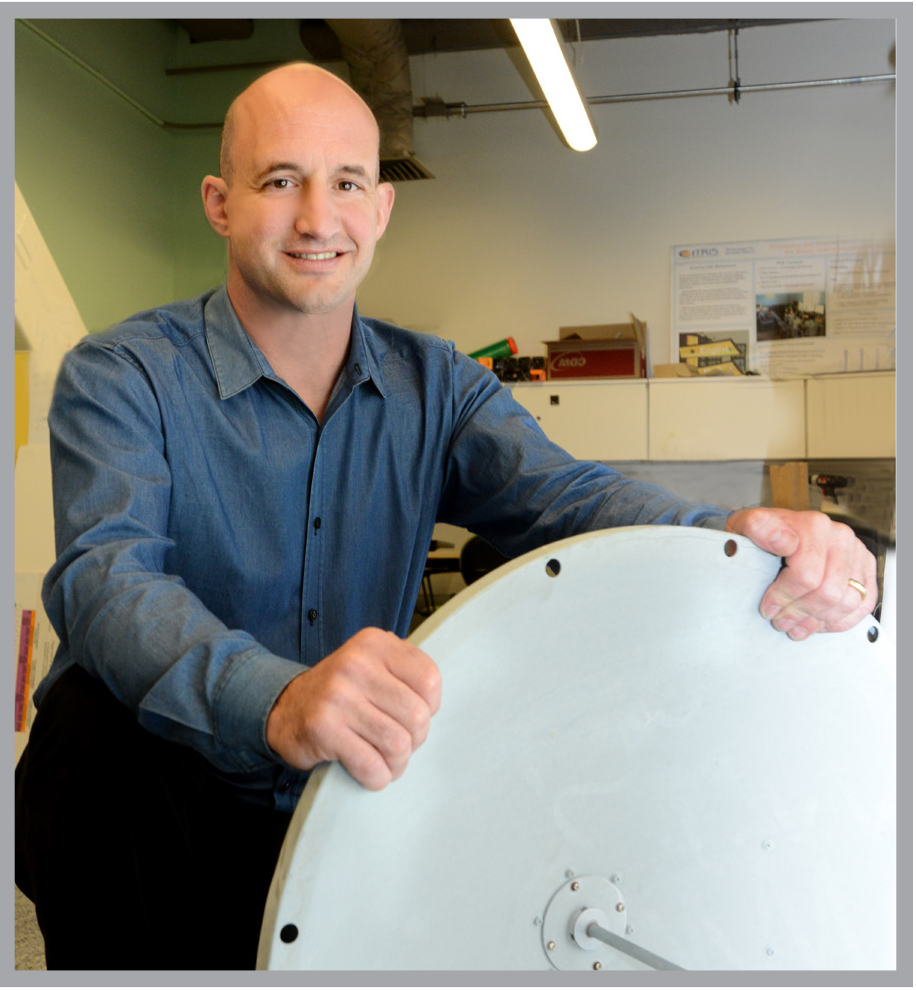Power to the People
In the beginning, Eric Brewer and Paul Gauthier created Inktomi. And they saw that it was good. In 1996, before anyone spoke the word Google, Brewer and his Berkeley graduate student launched Inktomi to create the first Internet service based on clusters of networked computers — the architecture that enables modern Internet search engines and cloud computing.

They had developed this prototype distributed system two years earlier as part of Gauthier’s PhD research in Berkeley’s department of computer sciences, where Brewer is a professor. This is the technology that allows us to type in a few keywords and access almost instantly the power of tens of thousands of computers to execute an Internet search.
As Brewer puts it, the networked architecture, adopted by Google and all other search engines, essentially gives a user the power of a supercomputer for a fraction of a second.
In 2003, Yahoo’s leaders bought Inktomi and rebuilt their company on the Inktomi search engine foundation. By then, Google had emerged. Unlike Inktomi, Google had established a sound advertising base, providing money to advance its own search engine capabilities. Google raced ahead of Yahoo after a few years and soon dominated the world of Internet search engines.
“Before the Internet bubble burst, I had billions of dollars — on paper,” recalls Brewer. “I began to think of philanthropy — particularly ways to help the developing world move ahead technologically.”
What Brewer might have supported through philanthropy he has since taken on directly with cadres of tech savvy students in electrical engineering and computer science, as well as students in urban planning, business and economics. In 2003, he created the Technology and Infrastructure for Emerging Regions program, or TIER, at Berkeley, a cross–department enterprise for research and prototype development to help developing countries gain access to affordable energy and communications capacities.
With support from the National Science Foundation, TIER students designed and helped install a novel Wi–Fi technology for the Aravind Eye Hospital in southern India. The system allows physicians at regional hospitals to remotely diagnose eye disease in patients being treated at far–flung clinics.
The Wi–Fi network has already allowed clinicians to restore vision to about a half million people with cataracts, retinopathy, glaucoma and other conditions. Wi–Fi installation is affordable, but is normally limited to the distance between a user and a “hotspot” — usually about a few hundred yards. The TIER group modified Wi–Fi to allow high–bandwidth connections even between towers more than 200 miles apart — a world record.

“As a society, we have only used two tools to improve the lives of the poor: good governance and macroeconomics,” Brewer says. “But if I look at what has actually changed societies, it’s technology. And we haven’t taken advantage of that enough.”
In many parts of rural Kenya, about 95 percent of homes have no electricity. Supported with seed funds from the Philomathia Center, TIER students in the Rural Electric Power Project (REPP) are developing new technologies to provide affordable power to two rural communities.
The project involves faculty and students from four Berkeley departments, from computer science and engineering to economics. At Berkeley, REPP team members developed prototype solar–powered generators for “microgrids” to power separate clusters
of homes. Once on the ground in Kenya, they discovered that the communities were almost directly under the national power grid, but not connected to it.
In this particular case, they reasoned, the solution was to connect each house to the existing grid rather than deploy the energy clusters. Project leaders have recommended this to government agencies. Brewer expects the microgrid strategy will fit the bill in other rural regions.
“What you develop in the lab almost never works the first time it’s deployed,” he says. “You discover things that you hadn’t taken into account. Graduate students are great at on–the–ground troubleshooting, and it’s also a terrific learning challenge.”
Brewer sees public universities as ideal incubators for developing new technologies to help emerging economies. “These values are somehow in the nature — the culture — of public universities,” he says. He notes that the Berkeley course, Global Poverty: Challenges and Hopes in the New Millennium, is the most popular course on campus.
He straddles the worlds of low tech and high communications technology, splitting his time between Berkeley and Google. At Google, he oversees the “core infrastructure” development for the Internet giant. “I will be leading the design of the next generation of infrastructure,” he says — a bit flatly given the ambitious sound of the task.
The world of technology has, of course, recognized Brewer’s leadership in fields from distributed networks, to low–tech communications and cloud computing. He was named one of the top ten innovators in the world by InfoWorld, and Forbes recognized him as one of their 12 “e–mavericks,” for which he appeared on the magazine’s cover.
In 1998, he was named a “Global Leader for Tomorrow” by the World Economic Forum. At the high–caliber group’s meeting in Davos, Switzerland in 2000, President Bill Clinton gave Brewer about 90 seconds to convince him that the U.S. government needed to create an official internet portal. Brewer succeeded. The micro–meeting led Clinton to order a team to investigate the possibilities. Before the end of the year, usa.gov was the government’s new portal.
“There are still technological barriers for many people in this country, but if you travel in the developing world, you see much higher barriers to economic growth,” Brewer says. “Worldwide, more than a billion people don’t even have electric lighting in their homes and businesses. If we focus on new technologies that match the scale of the problems on the ground, we can make a big, big difference.”
__________________
The Philomathia Center plays a key role in advancing UC Berkeley’s innovative research programs in energy and climate research. Established in 2012, the Philomathia Center represents the enduring partnership between UC Berkeley and the Philomathia Foundation in support of a common vision of improving humankind through the creative application of technology, independent thinking, and a commitment to education.
To learn more: philomathia.berkeley.edu.
Additional Information
Research profile on Eric Brewer
